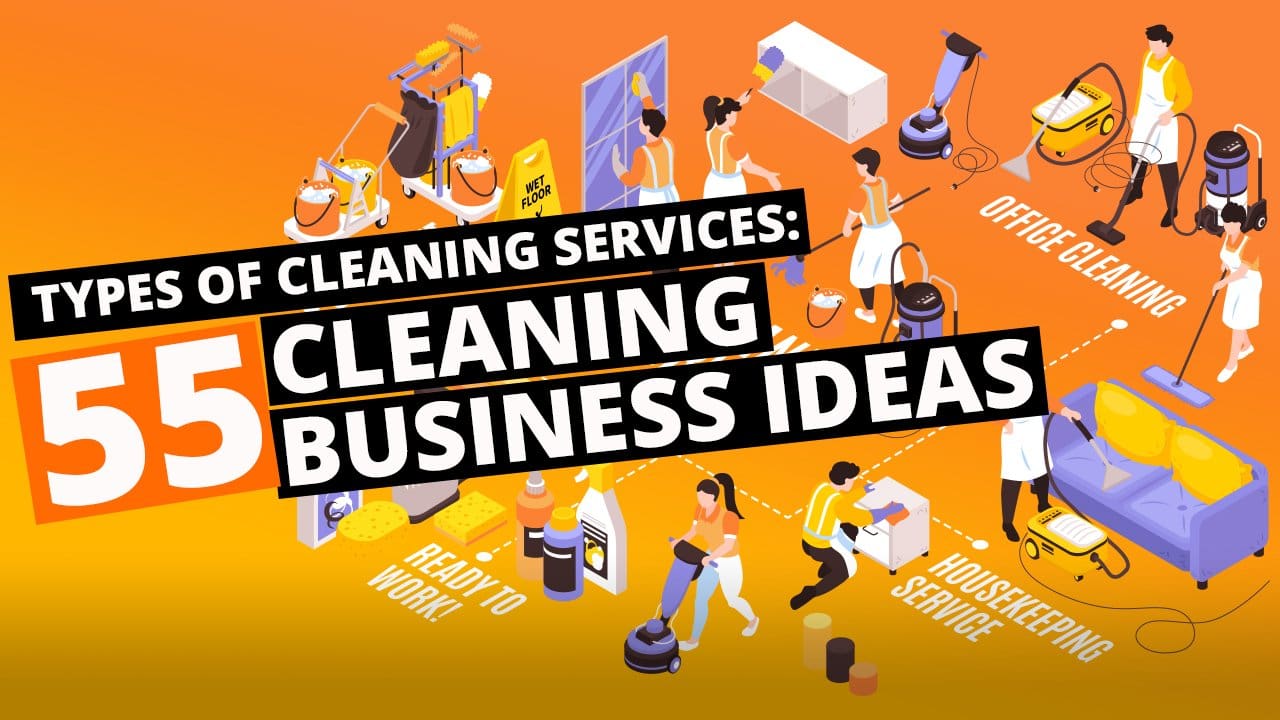How much does insurance cost for a small business? Probably less than you think.
In fact, many small business owners pay $0 for insurance. That’s because nearly 4 out of 10 small business owners don’t carry it, according to a recent UpFlip original survey. That opens them up to risks that could sink their fledgling businesses.
We’ll discuss the cost of small business insurance to help you figure it into your operating costs. We’ll also clarify which insurance will cover specific incidents.
- Why do small business owners need insurance?
- How much does small business insurance cost?
- What are the most common types of commercial insurance?
- What insurance do I need to run my own business?
- What is the average cost of insurance for small businesses?
- Are business insurance costs a startup cost?
- Top business insurance companies in USA
- Get business insurance quotes
Why do small business owners need insurance?

Small businesses need insurance policies to protect company assets when people get sick or injured. These policies also protect your business’s finances against property damage and lawsuits.
Furthermore, small businesses may be required by law or clients to have minimum levels of coverage.
While the insurance cost may seem like money down the drain every month, you’ll be glad you have small business insurance when something goes wrong.
How much does small business insurance cost?
We asked survey participants how much they spend annually on small business insurance. 60% said under $1,000, 16% said between $1K and $2.5K, and another 14% said between $2.5K and $25K. For 10%, the cost of insurance is over $25K.
Small business insurance costs range from $15 to $567 per month, depending on the industry, insurance company, insurance policy, and your business’s annual revenue and claims history. Costs also vary based on your business’s location and the level of financial protection you desire.
Expect higher premiums when an insurance company takes on more risk by insuring your business.
Depending on the insurance company, you may save money by paying an annual rather than a monthly premium. According to Insurance Business Mag, you can expect to pay $6,804 annually to cover all business insurance your company may need.
The table below does not include any discounts because the terms of discounts vary by provider. Check the table below for the costs of different types of coverage, per Insurance Business Mag.
| Type of Small Business Insurance Policy | Monthly Premium | Annual Premium |
| General Liability | $40 to $55 | $480 to $660 |
| Business Owner’s Policy | $40 to $100 | $480 to $1,200 |
| Professional Liability | $50 to $60 | $600 to $720 |
| Workers’ Compensation | $45 to $70 | $540 to $840 |
| Cyber Liability | $140 to $150 | $1,680 to $1,800 |
| Commercial Auto | $150 | $1,764 |
| Total | $455 to $585 | $5,460 to $7,020 |
Help us provide more insightful information about small business insurance
Want to help us provide more detailed information about small business insurance? Fill out the form below; we’ll use the data to provide even better information.
What are the most common types of commercial insurance?

Every small business should have business insurance to stay legally compliant and shield it from risks associated with conducting business. Unfortunately, small business owners don’t seem to be interested in paying for the business insurance cost.
According to our survey, just 50% of small businesses carry general liability insurance, 6% carry commercial auto insurance, and 5% have other insurance plans. Meanwhile, 38% of business owners do not have small business insurance.
The most common types of small business insurance are:
- Business interruption insurance
- Commercial automobile insurance
- Employment practices liability insurance
- General liability insurance
- Group health insurance
- Professional liability insurance
- Employment practices liability insurance
- Management liability insurance
- Cybersecurity insurance
- Workers’ compensation insurance
For those of you unfamiliar with some of the small business policies available, we’ve provided a brief description of each type below.
What is general liability insurance?
Only 50% of small businesses have general liability insurance.
General liability insurance or business liability insurance protects your small business from general claims of bodily and property damage. If someone could get hurt because of your business’s products, operations, or services, you should have general liability insurance.
General liability insurance policies will not normally cover punitive damages, auto accidents, professional mistakes, on-the-job injuries, intentional damage, or poor workmanship.
The most common general liability coverage is $1M per occurrence and $2M lifetime coverage.
What is commercial automobile insurance?

Only 6% of small business owners have commercial automotive insurance.
Commercial auto insurance is like personal auto insurance. It protects your business specifically (instead of you personally) against accident liability. You will need this insurance if your business uses vehicles because personal policies do not cover business use.
Pro Tip: I discovered this the hard way when I drove for Uber. Fortunately, commercial auto insurance costs were partially covered by Uber.
A small business owner will have coverage against liability, collision or comprehensive damage to property, medical expenses for occupants, and coverage against uninsured motorists.
Collision plans only cover accidents, while a comprehensive plan covers weather, other damage, and theft.
You’ll have limits for both bodily injury and property damage when you’re at fault. You can opt for the state minimum or higher coverage limits to protect your business should the liability coverage run out.
These policies often require driver background checks and will not allow DUIs.
What is business interruption insurance?
Business interruption insurance helps replace lost income when you temporarily close due to accidents like a power outage, government mandate, or other business interruptions.
When a covered loss occurs, your business interruption insurance will cover revenue you would have made, mortgage or lease payments for the period, loan payments, taxes, payroll, relocation costs, and training costs.
You’ll want to check the restoration period. The insurance normally kicks in after your business has been closed for 48 to 72 hours. You’ll also want to know the coverage limits, which should be based on your forecasted profits and revenue.
You’ll also want to consider other insurance to cover policy exclusions, like broken items, natural disaster damage, undocumented income, utilities, and diseases.
You’ll often see business interruption insurance combined with property and general liability insurance in a policy called a business owner’s policy (BOP).
What is employment practices liability insurance (EPLI)?

EPLI protects small businesses against lawsuits involving employment claims, like discrimination, emotional distress, employment contract breaches, benefit mismanagement, negligent evaluations, sexual harassment, wrongful termination, and wrongful discipline.
You can buy this liability policy as stand-alone coverage or as part of a BOP.
The EPLI cost varies based on the number of employees, past violations, and type of business. This business insurance reimburses legal costs but not punitive damages or fines. Nor does it cover infractions that are covered by other policies.
Many insurance companies will require you to create and post workplace policies, educate staff, make it easy to report discrimination, and maintain proper documentation.
What is group health insurance?
Group health insurance isn’t small business insurance, but many small businesses offer group health insurance plans to their employees. Plus, they must do so if they have more than 50 employees.
You are required by law to offer the same health insurance to all employees regardless of age if you have 20 or more employees. This extends to their spouses, too.
Consolidated Omnibus Budget Reconciliation Act (COBRA) coverage, coverage during a severance package, health savings accounts, retiree coverage, self-employed health care, and Veterans Affairs health insurance costs do not count under group health care coverage.
You can learn more from the Social Security Administration.
What is professional liability insurance?

Your business needs professional liability insurance (indemnity insurance or errors and omissions insurance) if you regularly provide advice or professional services. A client may also ask you to carry a professional liability policy.
Professionals sometimes give bad advice, do something they weren’t supposed to, or forget to do things they should have done. When these things occur, they can have catastrophic consequences.
Professional liability insurance covers the cost of defense and the settlement for negligence, libel, slander, and contractors working under you.
Policy exclusions include bodily injury, cybersecurity attacks, employment claims, false advertising, fraud, property damages, and services that are outside of the normal business practices for your industry. Make sure to read the exclusions carefully.
What is management liability insurance?
Business management liability insurance is a group of insurance coverages to help protect against exposure to lawsuits. This group of policies includes employment practice insurance as well as:
Crime Insurance: Protects from losses due to computer fraud, employee dishonesty, theft, counterfeit money, monetary security, and other damages.
Director and Officers Insurance: Protects directors and officers who are named in a lawsuit along with the company. You should maintain this insurance on executives and directors even after they leave the company because they can still be held liable until the statute of limitations expires.
Fiduciary Liability Insurance: When you or another company manage a benefit plan, including 401Ks, dental, disability, life insurance, and medical benefits, you have a fiduciary responsibility to act in the best interest of participants. This protects the company if the benefit plan fails to administer benefits properly.
Each of these small business insurance policies can be written as a package or a stand-alone policy. Management liability packages are normally chosen by small businesses and non-profits, while stand-alone policies are more common in major corporations.
What is cybersecurity insurance?

Cyber liability insurance policy helps businesses pay for losses from a cyber security attack or data breach. It also helps pay for the investigation, legal services, communication, and refunds to customers that occur while fixing the vulnerability.
Cyber liability insurance normally covers data destruction, data extortion, data theft, and hacking losses. This insurance is especially valuable if you collect large amounts of customer data or own intellectual property.
A cybersecurity insurance policy will often exclude theft by a business partner, human error, pre-existing vulnerabilities, poor security practices, prior attacks, and system improvements.
The insurance company will likely check your system for known vulnerabilities and poor processes. Make sure to check your systems for vulnerabilities and create a data security policy before applying for cyber insurance.
What is workers’ compensation insurance?
Workers’ compensation insurance, or “workers’ comp,” covers workers’ earnings and medical costs if they are injured or get sick at work. Every state has its own requirements, and companies are required by law to provide workers comp’ to employees.
Workers’ comp reduces the likelihood of lawsuits as long as the insurance pays employees’ wages, medical bills, and rehabilitation. It will also pay debt benefits.
Your workers’ compensation insurance costs will be based on the industry you are in, but you may be required to pay more if you have consistent payouts.
Your small business may be fined and forced to pay claims out-of-pocket if you do not carry this insurance. You may also face criminal charges and lose your business license if you fail to provide the proper insurance.
What is commercial property insurance?
Commercial property insurance protects your company’s building, computers, documents, and other property from burst pipes, explosions, fire, storms, vandalism, and theft.
You’ll normally need separate insurance to protect against natural disasters.
Commercial property insurance costs vary based on the industry, location, property value, and the building’s construction, fire protection, and occupancy. Your BOP will normally include commercial property insurance.
Now that you understand the insurance types sold to small businesses, let’s discuss what yours will need.
What insurance do I need to run my own business?

Every small business is different. Some small businesses may not need any insurance, while others will need the full spectrum of small business insurance offerings.
At the very least, you should have general liability, commercial vehicle, and property damage coverage. Make sure to consult a business lawyer in your state to see what the requirements are for your industry.
What is the average cost of insurance for small businesses?
The average cost of insurance for small businesses will depend on the type of insurance, but the two most common types are general liability and commercial auto. These are the costs, per Insureon:
- Average general liability insurance costs: $502 per year or $42 per month
- Average commercial auto insurance costs: $1,764 annually or $176 per month
It should be noted that, according to our survey, 38% of small businesses open themselves up to risk by not carrying any small business insurance.
Average monthly costs of small business insurance

The average monthly premium will differ for each small business, but according to Insureon, small business liability insurance averages $42 per month, while commercial vehicle policies average $176 monthly.
Are business insurance costs a startup cost?
Yes, your small business insurance cost is considered a startup cost. You should include at least $1,000 annually for small business insurance costs in your budget. However, your small business insurance cost may be much higher depending on your age, insurance credit score, job risks, number of employees, and industry.
For instance, when Mikael Sant started the trucking company Sant Lines at the age of 19, his first commercial auto insurance quote was $57,000 for him to drive plus 20% down.
Mikael Sant is one of the business owners who talked about the cost of insurance for small business operations. He pays nearly $100K a year for four trucks. Find out more about driving a truck below.
Top business insurance companies in USA
Business owners have numerous companies to evaluate when they want to compare costs. Consider some of these companies:
- AIG
- Allstate
- American Family Insurance
- Berkshire Hathaway
- Chubb
- CNA Financial
- COUNTRY Financial
- Erie Insurance
- Farmers Insurance
- GEICO
- Hiscox
- Liberty Mutual
- Markel Corporation
- MetLife
- Mutual of Omaha
- Nationwide
- Next Insurance
- Progressive
- State Farm
- The Hartford
- Travelers
- Zurich Insurance Group
To help compare rates, we recommend Simply Business. It will help you find the best insurance costs for a small business by comparing rates from 16 different insurance providers.
Get business insurance quotes

Nobody likes paying an insurance premium, but the benefits may outweigh this. For instance, business interruption insurance could have prevented the demise of the 700,000 businesses that shut down—and prevented the lost wages that came with their shutdowns—during the pandemic.
More coverage means more protection. A business owner’s policy includes general liability, business interruption, commercial property damage, and workers’ comp insurance, and you can expect to pay about $2 per day to protect yourself from legal fees and higher-risk events that could shut down your business.
Why don’t you have small business insurance?





